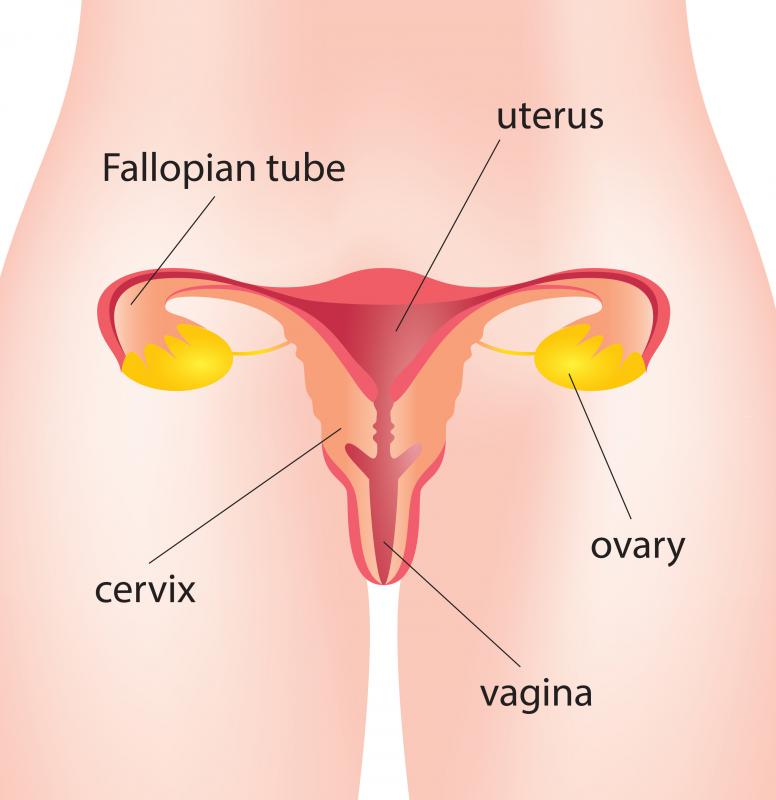At WiseGEEK, we're committed to delivering accurate, trustworthy information. Our expert-authored content is rigorously fact-checked and sourced from credible authorities. Discover how we uphold the highest standards in providing you with reliable knowledge.
What is a Postpartum Fever?
Postpartum fever occurs anytime in the first six weeks after childbirth and may indicate benign or extremely serious health conditions. Most often occurring the first two weeks after a child is born, the fever doesn’t have to be very high to suggest serious problems, and presence of it is always reason to contact a doctor. Though it’s possible for fever to mean very little medically, it can be indicative of infections that will worsen or conditions like deep vein thrombosis, which cause blood clotting in the legs and dangerous risk for pulmonary embolism.
There are several principal causes of postpartum fever. These include infection, which might affect the uterus, the bladder, surgical wounds, or the breasts. During labor, bacterial contamination may affect the uterus, bladder, or surgical wounds and create infection. Breast infection is usually mastitis, or blockage in one or more milk ducts. This frequently occurs a few days after breastfeeding is initiated, though it can occur after the postpartum period, too.

Blood clotting disorders may also cause fever, and deep vein thrombosis is most common in occurrence, where clots forms in the deep veins of the legs. A rare related disorder that results in fever is septic pelvic vein thrombophlebitis, where blood clots form in the pelvic blood vessels. It’s usually accompanied by extreme pelvic pain and shortness of breath, and requires treatment with blood thinners and antibiotics.

Other potential causes of postpartum fever are conditions like collapsing lung, called atelectasis. This is treated with exercises to restore lung function. A fever could be incidental to the postpartum period, instead of being a direct result. Getting a cold or flu during the first weeks after pregnancy isn’t unheard of, though women should seek medical care to rule out infection and to get advice on how to care for a newborn while sick.

Generally, women who undergo natural, nonsurgical childbirth don’t have a highly elevated risk for fevers. About 1% of women who deliver vaginally develop postpartum fever, though this figure is somewhat questionable, especially in relationship to development of mastitis. There does seem to be a much higher rate of complications after birth with cesarean or c-section. Up to 30% of women may develop infection or conditions that result in fever.

Even when the risk is low, any evidence of fever is a warning sign and suggestion of potentially serious health problems. During their release from the hospital, women should receive instructions on when to contact their doctors. If they have lost these instructions, or fail to remember them, the basic guideline is this: postpartum fever, even a low one, needs medical attention right away. At the very least, women should call their doctors to determine what medical treatment they should seek.
AS FEATURED ON:
AS FEATURED ON:














Discussion Comments
Also, in many instances, cesareans are performed to save a babies or to aid women who are having or would have trouble with natural birthing.
Drentel - When you consider that the cesarean procedure involves an incision, you can understand that the chance of an infection would be higher than in a natural birth. And since fevers usually accompany infections there would be a greater chance of postpartum fever.
However, I do agree, 30 percent is scary.
As many as thirty percent of women who have cesarean births develop fever symptoms. I had no idea the number was that large. The one percent associated with natural births sounds much less scary. Makes you think twice about natural childbirth rather than cesarean. Of course, there isn't always an option.
Post your comments